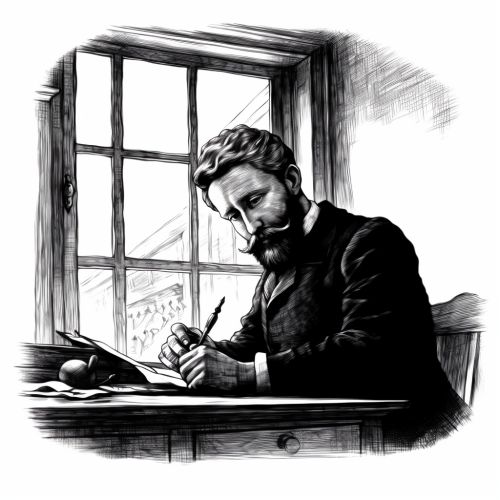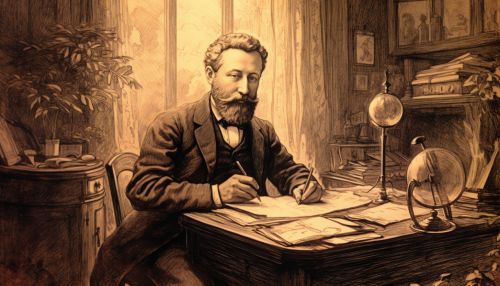Jules Verne
Early Life
Jules Verne was born on February 8, 1828, in Nantes, France, a bustling seaport town on the Loire River. He was the eldest of five children born to Pierre Verne, an attorney, and his wife, Sophie Allote de la Fuÿe. Verne's love for the sea was fostered from an early age, as he watched ships sail down the Loire and dreamt of far-off lands.
Education
Verne was sent to Paris in 1847 to study law, following in his father's footsteps. However, his passion for literature, particularly for theatre, soon took precedence over his legal studies. He began writing short stories and plays, much to the disapproval of his father, who wanted him to focus on his law career.
Literary Career
Verne's literary career began in earnest in the 1860s, when he met publisher Pierre-Jules Hetzel. Hetzel saw potential in Verne's writings and encouraged him to write a series of adventure novels, which would later become known as the Voyages Extraordinaires. These novels, which include famous works such as "Twenty Thousand Leagues Under the Sea", "Around the World in Eighty Days", and "Journey to the Center of the Earth", are considered some of the earliest examples of science fiction.


Voyages Extraordinaires
The Voyages Extraordinaires series is a collection of 54 novels written by Verne between 1863 and 1905. These novels are characterized by their scientific accuracy and visionary ideas, many of which have since become reality. For example, in "From the Earth to the Moon", Verne accurately predicted the trajectory and velocity needed for a spacecraft to leave Earth's atmosphere, a concept that was revolutionary at the time.
Later Life and Death
In his later years, Verne served as a city councilor for Amiens, a city in northern France. He continued to write and publish novels until his death on March 24, 1905. His influence on literature and science fiction is still felt today, and his novels continue to be popular worldwide.
Legacy
Jules Verne's legacy is immense. He is often referred to as the "Father of Science Fiction", and his novels have inspired countless other authors and filmmakers. His visionary ideas about space travel, undersea exploration, and technological advancements have made him a timeless figure in literature. His works have been translated into more than 150 languages, making him one of the most translated authors in the world.
